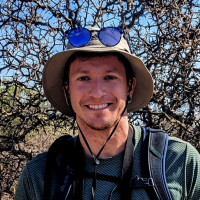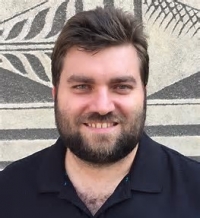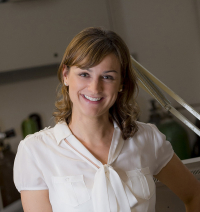Osher Biennial Master Class I: An Anthology of Anthropogeny
Biographical Sketches: Speakers
UC San Diego
Pascal Gagneux is CARTA's Executive Co-Director, a Professor of Pathology and Anthropology, and the Department Chair of Anthropology at UC San Diego. He is interested in the evolutionary mechanisms responsible for generating and maintaining primate molecular diversity. The Gagneux laboratory studies cell-surface molecules in closely related primates species. His focus is on glycans, the oligosaccharides attached to glycolipids and glycoproteins of the surfaces of every cell and also secreted into the extra-cellular matrix. Gagneux's laboratory is exploring the roles of molecular diversity in protecting populations from pathogens as well as potential consequences for reproductive compatibility. Dr. Gagneux’s interest is in how glycan evolution is shaped by constraints from endogenous biochemistry and exogenous, pathogen-mediated natural selection, but could also have consequences for sexual selection. Dr. Gagneux has studied the behavioral ecology of wild chimpanzees in the Taï Forest, Ivory Coast, population genetics of West African chimpanzees, and differences in sialic acid biology between humans and great apes with special consideration of their differing pathogen regimes. In 2011, while Associate Director of CARTA, Dr. Gagneux helped to establish a graduate specialization in Anthropogeny at UC San Diego. This wholly unique graduate specialization is offered through eight participating graduate programs in the social and natural sciences at UC San Diego.
University of California San Diego
Rachel Mayberry is a Professor of Linguistics at the University of California San Diego where she is the Director of the MultiModal Language Development Lab, and an Associate Director of CARTA. Professor Mayberry investigates the structure, development, and psycho- and neurolinguistic processing of signed languages in comparison to spoken languages. Her primary research investigates the linguistic and neural underpinnings of the critical period for language using American Sign Language and deafness as the test case. In previous work she pioneered research on the relation between sign language acquisition and reading development, the co-development of gestures and syntacic acquisition in preschool children learning two languages simultaneously in the home, and how speech dysfluency appears in co-gesture expression. Professor Mayberry's work has been supported by both Canadian and American grant funding agencies and received the Distinguished Alumni Research Award from McGill University. At UCSD she is also affiliated with the Center for Research on Language, the Interdisciplinary Program in Cognitive Science, the Human Developmental Science Program, and the Joint Doctoral Program in Language and Communication Disorders.
UCSD & Salk Institute
Nicholas Nelson is a UCSD Biological Sciences Ph.D. Candidate in Axel Nimmerjahn’s lab at the Salk Institute. Nicholas’s research interests lie in the interface of the nervous and immune systems, and his thesis research investigates how glial cells in the spinal cord regulate nervous system homeostasis and inflammation during the development of chronic pain. More broadly, Nicholas is interested in what shaped the evolution of the human mind – what cellular and molecular actions underlie cognition in mammals, and what factors fueled the emergence of the human mind’s unique (or not so unique) flaws and capabilities.
UC San Diego
Federico Rossano is an Assistant Professor in the department of Cognitive Science at the University of California, San Diego. He obtained a laurea (BA+MA) in Communication Studies with a specialization in Semiotics from the University of Bologna (Italy). He received his PhD in Linguistics from the Max Planck institute for Psycholinguistics and Radboud University, Nijmegen (The Netherlands) and has worked as a post-doctoral researcher in the Department of Developmental and Comparative Psychology at the MPI for Evolutionary Anthropology in Leipzig (Germany). He has authored publications on psychotherapeutic interactions, joint attention and voice following in human infants and non-human primates, the development of property concerns, social norms, value perception and distributive and procedural justice in human ontogeny, gaze behavior in face-to-face interactions in different human cultures, gesture ontogeny and the development of communicative signals in baby non-human primates. His current research adopts a comparative perspective on social cognition and is focused on the development of communicative abilities and social norms in human and non-human primates.
UC San Diego School of Medicine
Tatum Simonson is an Associate Professor and the John B. West Endowed Chair in Respiratory Physiology in the Division of Pulmonary, Critical Care, Sleep Medicine, and Physiology at UC San Diego School of Medicine. Dr. Simonson applies integrative physiological genomics approaches to understand systems-level responses to hypoxia in highland populations. Her research provides evidence for genetic adaptations to high altitude and associations among these factors, molecular functions, and physiological traits. In addition to her research in the highlands of Tibet and Peru, her team studies natural variation in human responses to low oxygen and aims to understand the contributions of genetic and epigenetic factors to variation in hypoxia-related disease states (e.g., altitude illness, sleep apnea, and cardiopulmonary diseases). These and related interdisciplinary efforts are coordinated through the Center for Physiological Genomics of Low Oxygen (CPGLO) at UC San Diego.






